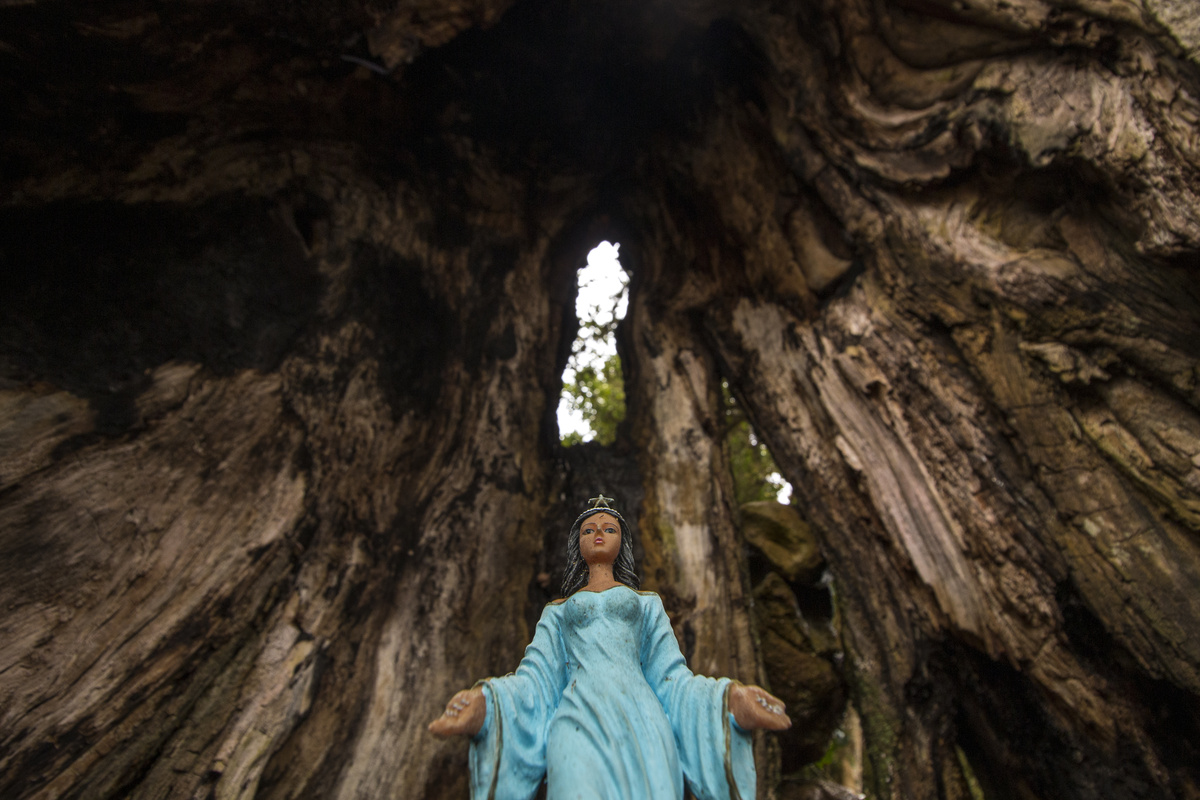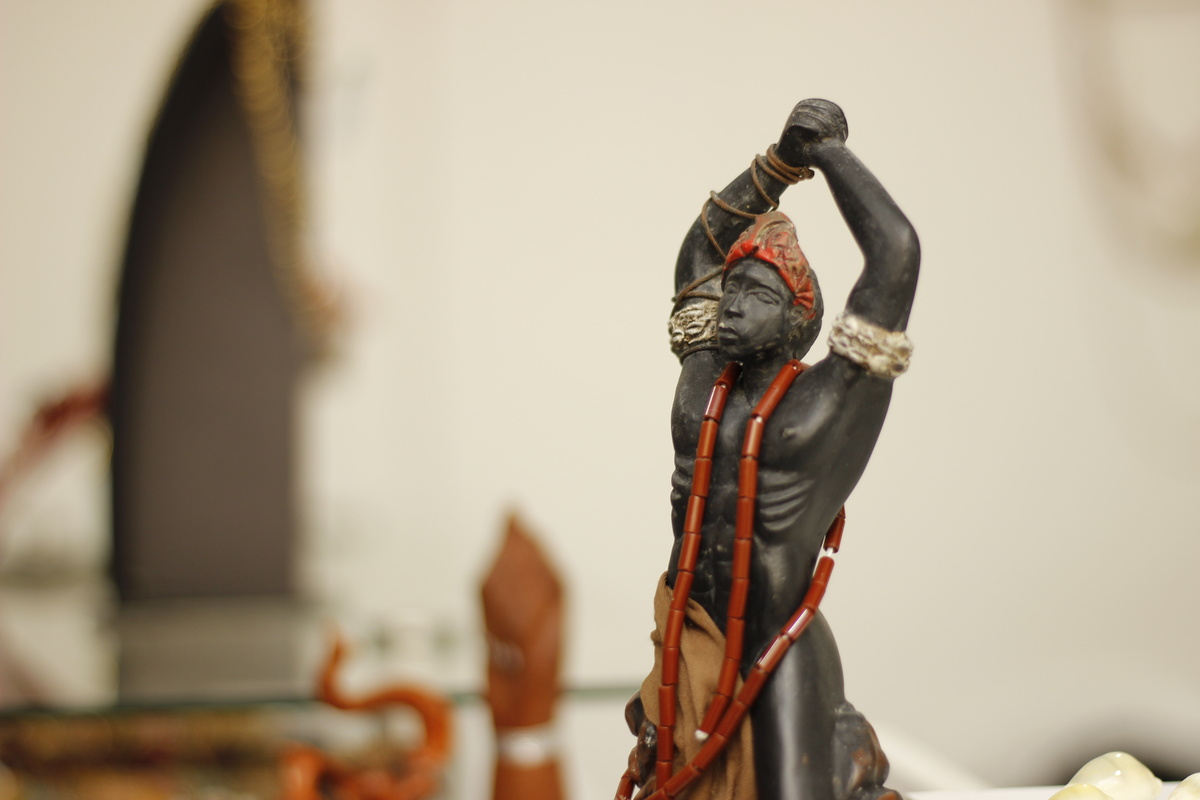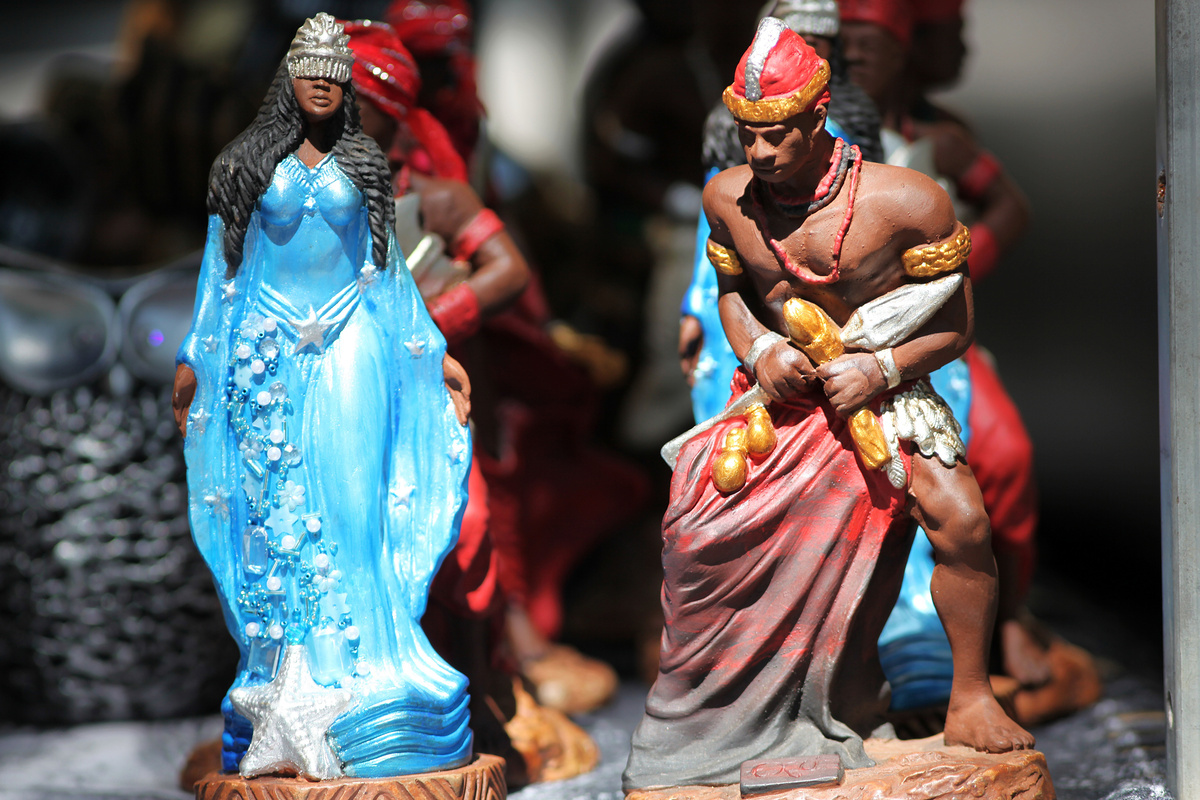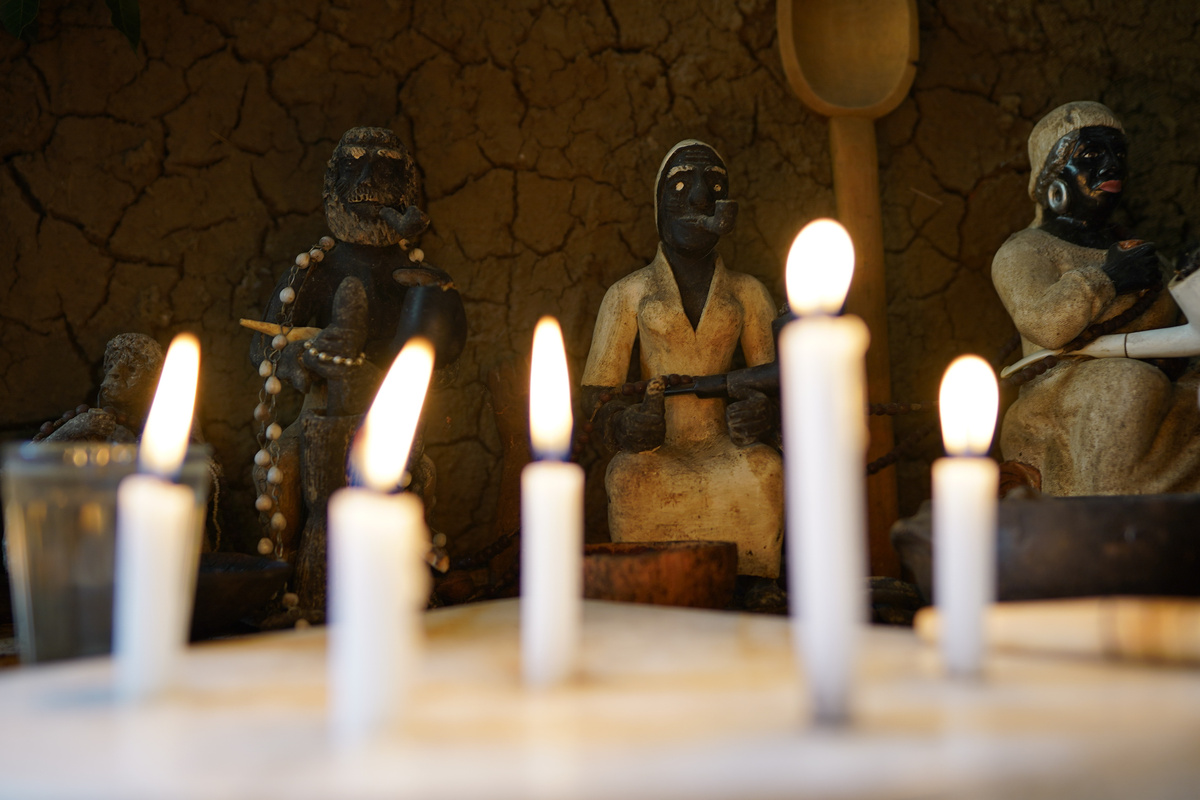Table of contents
Meaning of the sons of each Orixá

The orixás are widely known entities in Brazil, since Afro-Brazilian culture is widespread throughout the country. These entities represent forces of nature, but also carry extremely human characteristics. Among them are joy, ease of communication, sense of justice and motherhood, impulsiveness, aggressiveness and many others.
Since the orixás give some of their energy and protection to humans, many people are curious to know which one is their child, who exerts influence on their personality and takes care of them with more affection.
With that in mind, in this article, we explain what the orixás are, how their stories are and what their relationships are with Candomblé and Umbanda. Learn about the characteristics of their children and how to find out whose son you are!
What are the Orixás

The orixás are entities of the Yoruba African mythology. They are divinities that represent the forces of nature, through which they are present and order the world of the living. According to other sources, they are mythical ancestors or spirits of people who have already passed through the earth, but who evolved and ascended spiritually, becoming important entities.
Therefore, they are not perfect, and in the mythology of Candomblé and Umbanda, which tell the stories of the orixás, we see that they are very similar to humans, in their qualities and faults.
To Umbanda
According to Umbanda, the orixás are entities that carry the energies of nature in themselves and are allies of people, seeking to help them in their spiritual evolution. However, in Umbanda, contrary to what is considered in Candomblé, orixás are entities, not ancestral people. They are forces of nature and, therefore, are too powerful to be incorporated in a human.
In this way, they do not incorporate, or rarely do, but send their auxiliaries, which are the entities known as Caboclos, Pretos-Velhos, Baianos, Pombagiras and so on. Therefore, it is these entities that bring the messages of the orixás and, thus, advise the people who seek them.
For Candomblé
According to Candomblé, the orixás are entities that represent the energies of nature. As examples, we have Yansã, who governs storms and lightning, Oxóssi, who is the lord of the forests, and Oxum, lady of the waterfalls. They are the ones who govern the world in the name of Olorum, the supreme orixá, who represent the primordial powers and are linked to mythical ancestors.
These orixás are presented in the cults through incorporation into the mediums of the terreiro and have many particularities, such as gestures, accessories, colors, dances, personalities and distinct abilities.
The name of the supreme orixá may vary according to the nation or ethnicity of origin, because there are several. For Ketu (or Nago), he is called Olorum; for Banto (or Angola/Congo), he is called Nzambi and for Jeje (or Daomé), he is called Mawu.
The history of the Orixás
The orixás come from the mythology of the Yoruba, one of the largest ethnic groups on the African continent. They are originally from Nigeria, but can also be found in Benin, Ghana, Togo and Ivory Coast. According to mythology, the orixá Olodumaré, or Olorum, is the supreme god who created the world and the other orixás so that they could govern and be their intermediaries in contact with humans.
Olodumaré created the other orixás so that they represented the elements of nature, being himself the junction of all these energies. However, according to other sources, the orixás would not be forces of nature, but mythical ancestors, spirits of people who once lived on earth and who, by their evolution, became ascended, assuming the title of orixás.
During the slavery period in Brazil, a large number of Yoruba people were brought to the country and brought their native religious beliefs with them, Candomblé being the result of this. Contrary to popular belief, this is not an African religion, but a union of beliefs of various African peoples who were enslaved in the country. Therefore, it is a Brazilian religion with African roots.
In this way, the enslaved people managed to maintain a belief that connected them to their roots. But the religious exercise that was not Christian was violently condemned, so the cult of the orixás had to be disguised, placed under the veil of Catholic saints, which created the syncretism so often cited in Umbanda. This allowed the cult to continue without reprisals from the authorities.
What are the orixás of Umbanda and Candomblé?
Although both religions are of Afro-Brazilian matrix, each one has its own particularities, so that, in some aspects, they take different directions. One of them is the issue of their deities, the orixás. In Yoruba mythology, which influenced both, there are hundreds of orixás, but the number in Afro-Brazilian religions is much smaller.
In Umbanda, only 9 orixás are worshiped, being them Oxalá, Ogum, Oxóssi, Xangô, Iemanjá, Oxum, Iansã, Nanã Buruquê and Obaluaê. Candomblé, on the other hand, has a much larger number of divinities. This varies from terreiro to terreiro and can reach up to 72 orixás, but the main names are Oxalá, Ibeji, Nanã, Iemanjá, Obá, Logun-Edé, Yansã, Oxum, Xangô, Ewá, Oxumaré, Obaluaê, Ossain, Oxóssi, Exu and Ogum.
Characteristics of the sons of each Orixá

The orixás, besides being energies of nature, carry many human traits, such as intemperate or serene, aggressive or diplomatic, communicative or introverted personalities. These traits are transmitted to their children, also forging their personalities. Below, find out what are the main characteristics brought by those influenced by orixás worshiped in Umbanda andCandomblé!
Sons of Exu
The children of Exu are cheerful, optimistic, extroverted, smart, ambitious and always attentive to everything around them. They are diplomatic, but at the same time have an immense facility to get in and out of trouble. They are sociable and conquer many friends wherever they go, as well as disaffected ones.
They are very talkative and charming, so they get everything they want. Their sex life is usually hectic and unashamed. In general, they are the type that acts first and thinks later. Just like Exu, they make a mess, come out unscathed and still have fun with the consequences.
They are contradictory, full of trickery, very helpful and intense, carrying charisma and passion for life. The sons of Exu are great provocateurs, for good or ill.
Sons of Ogum
Those who are sons of Ogum like constant change and novelty, for they are conquerors and do not like the routine of an ordinary life. They are also coherent, though curious, and resist well the difficulties of life.
They are courageous and possess great concentration, as well as being open to new ideas on condition that they are coherent and precise. They are extremely determined, with an enhanced competitive instinct, and do not easily forgive those who hurt them. In addition, they are not very fussy about food or fashion.
Their sincerity can sometimes go beyond common sense and become rudeness when they want to impose their wills and opinions. The children of Ogum have an impulsive temperament and can hardly achieve a balance in this regard.
Sons of Oxóssi
The children of Oxóssi have a quiet and calm appearance, and are not used to express what they think. They can seem arrogant and overbearing (and sometimes they really act that way). They are extremely intelligent, cautious and suspicious. For this reason, they choose their friendships well.
They can be hurt by small things, they listen to advice and respect people's opinion, although, in the end, they always do what they want. Because they are introverted and discreet, they find it easy to isolate themselves and observe everything that happens around them. The children of Oxóssi are vain and, even if this is not their goal, their presence is always noticed.
Sons of Ossain
He who is a son of Ossain is usually very reserved, funny and easy-going, happy and obstinate. But he can become violent and dangerous when dissatisfied.
The children of this Orixà know how to conquer people, they love amorous adventures and, when in love, they are patient and very devoted. They are hard workers who are in search of stability and independence. They like moments alone but also enjoy hectic parties. They are meticulous and go at their own pace.
They fall ill easily and recover just as quickly. They are mysterious and do not like to share their intimacy with anyone, not wanting to get involved in the affairs of others. They are balanced and like harmony with themselves and the world. They have ease in individual work, being detailed, capricious and perfectionist.
The children of Ossain are self-assured because they do not give importance to the opinion of others. Therefore, they have a quiet and reserved life.
Sons of Obaluaê
The children of Obaluaê are perfectionists, have a fragile appearance, maybe due to sadness or illness, and have a need to have friends around, to escape from the loneliness that their introspective way carries. They like (and need) some time alone and are very generous, at the same time as pessimistic.
They have great difficulty in giving themselves in love and, at work, they seek more than money: they want the satisfaction of knowing that they are doing something they love to help others. In the health field, they usually have emotional problems, because their pessimistic and lonely way can lead to this path. The children of Obaluaê are sweet but complaining.
Sons of Oxumaré
Oxumaré and his children have as their strongest characteristic the constant desire for change. From time to time, they feel the need to change house, job, city and friends. They love new beginnings and are always renewing themselves. In addition, they carry androgynous characteristics and can assume behaviors and activities said to be feminine or masculine throughout their lives.
They are also proud and like to appear, always walking a tightrope so as not to fall into arrogance. They are the ones who stand out and are therefore confident, also being great appreciators of material luxuries. The sons of Oxumaré are dual, careful, easily irritable, indecisive, impatient, disdainful and seductive.
Sons of Xangô
The sons of Xangô like to please everyone and have as their goal, from a very early age, fortune and professional success, because they are great lovers of the good things in life. They do not like to be contradicted and always try not to make mistakes, because they do not deal well with it. They are fickle in their emotions and can be authoritarian or kind, harsh or fair.
The sons of Shango are also great diplomats, very generous and courteous to all. They have an impulsive and rebellious temperament. They are proud, sincere and not very creative, possessing more ability to perfect what is already ready.
Children of Oxum
Those recognized as Oxum's children are communicative, friendly and laughing. They are vain, elegant and sensual and like to be well dressed. They can show themselves as very kind and harmless, but behind that there is a strong determination and ambition. Although vain, they are discreet and do not like scandals.
Although very emotional and tearful, they are usually calm and serene. They know very well how to use words to their advantage, being able to manipulate people through seemingly silly and informal conversations. The children of Oxum have a sharp intuition and use it to escape before a bomb explodes, because they do not like confusion or confrontations.
Sons of Logunedé
The children of Logunedé are not very common, so they are difficult to recognize. But one of their strongest traits is their great attraction to the world of arts, so that something like theater, dance, music or cinema will always be among their taste or profession of choice, especially those that put them in evidence.
They are vain and like everything that is beautiful. Their young and exotic appearance are strong characteristics. They have immense facility to get what they want because they are extremely charming, but laziness and jealousy can be their worst faults. The sons of Logunedé are extremely intelligent, intuitive, adaptable and educated.
Children of Yansã
Those known as Children of Yansã are fearless, free and independent. They do not care about other people's opinions, love nature as well as travel and excursions. They are audacious, like to have power in their hands and can sometimes become authoritarian. They act with determination and do not take insults at home.
They are extremely direct and objective, but in the love field, they usually get involved in sentimental confusion. They are jealous and do not admit being betrayed, but they betray when they feel they need to be free.
The children of Yansã do not accept being contradicted and can be aggressive in their attitudes. They also love to be flattered, although they do not believe in false praise and compliments.
Sons of Obá
The children of Obá lead a simple life but are always in search of knowledge, which makes them very wise at a young age. In addition, they are very dedicated to their love life, sometimes having trouble giving themselves too much in a relationship.
They are jealous and although kind, they can also be vindictive. They tend to show aggressive reactions against situations that bother them. They have a strong temperament and are tireless workers.
The sons of Obá can be complainers, but they are focused and determined, with the personality of a warrior.
Sons of Ewá
Ewá's children are charming and talkative, in the strict sense of the word, because they talk more than they listen during a conversation. They do not like to take advice and do not like to give in, because they feel they are the masters of themselves and of reason.
They are also usually full of vigor and intense, supporting a busy life. They tend to enjoy confusion, which can sometimes happen because they speak before they think. The children of Ewá are extremely charismatic, indiscreet, cheerful and devoted to their interests, whether it be a love, a job, family or friends.
Sons of Yemanjá
The children of Yemanja have sophisticated taste and dress accordingly. They enjoy comfort and the luxuries the world can offer. They are extremely affectionate and motherly, liking to advise those around them.
In addition, they are receptive and kind, but jealous with loved ones and their things. They like to test people and try to fix other people's lives according to what they consider right.
They are people who live today, without making many plans for the future. They tend to take a long time to open up and can even forgive a fault, but it is difficult to forget it. For this reason, the children of Yemanja can be spiteful and even manipulative, using emotional blackmail to get what they want.
Children of Nanã
Those who recognize themselves as children of Nanana tend to be very calm people and so slow that they irritate those around them. They are very kind, gentle and have dignity. When they carry out an activity, they do it with great care, as if they had all the time in the world in their hands. They have great affection for children and educate them with gentleness and meekness, as if they were grandparents.
In manner of acting and appearance, they may appear to be older, also developing earlier health problems such as rheumatism. They tend to live nostalgically, always believing that the past was happier. Children of Nanã may also be stubborn and grumpy, the type that holds a grudge for a long time, but act with security and balance.
Sons of Oxalá
The children of Oxala are calm, reliable, reserved, thoughtful, and sometimes stubborn. They do not lose control of themselves when faced with problems, and are creative but slow and a little complaining. They do not like to lose power to which they are accustomed, do not admit being wrong, and hate taking orders.
Children of this orixá have the ability to express their ideas, liking debates, but they do not accept well opinions that differ from their own. They also have great moral strength, being extremely faithful in love and friendship. They are joyful, love life and are idealists, defending the unjust, the weak and the oppressed.
How to know which Orixá I am son of?

Afro religions are widespread in Brazilian culture and, for this reason, even if the person is not a follower of the religion, she knows a little about it and wonders which orixá would be the daughter. Well, the answer to this can be given in several ways, depending on their level of commitment and interest.
For some, it is possible to find out this information through your sign or the day of the week you were born, as the orixás also rule these areas and the signs approaching the dates that celebrate them.
It is also possible to find out through the numerology of the orixás, known as Odus. The Odus act as the signs of a horoscope of the orixás, in which, to discover yours, all you have to do is add up all the numbers on your date of birth. If the number is greater than 16, it should be reduced to a single number, which will indicate which is your orixá.
However, the most recommended way to find out which orixá you are son of is to go directly to a terreiro, be it Candomblé or Umbanda. In the first case, the information will be given through a game of cowrie shells, and in the second, it will be told as soon as the entities are informed that you are ready to receive this knowledge.
When seeking this information, one must be aware that knowing which orixá one is a son of is not something that should be considered trivial. It should be done with respect for religion and its entities.

